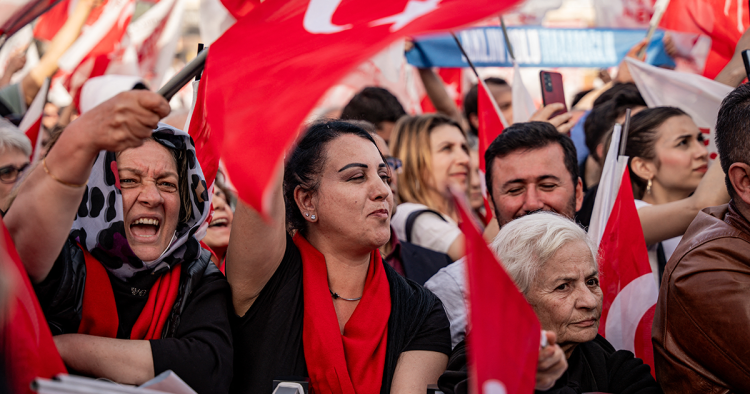At a time when there is widespread anxiety around the world about the fate of democracy but not enough debate on the future of autocracy, Turkey presents an interesting case for scholars and policy-makers. Turkish President Recep Tayyip Erdoğan spent two decades in power taking steps to build his one-man rule. 2023 was the year when many thought it would finally come to an end. The government’s poor response to the devastating earthquake in February 2023 and Turkey’s mounting economic problems strengthened popular discontent with Erdoğan’s rule. Yet he still managed to win another term as president in the May 2023 elections thanks to the disarray among the six-party opposition coalition and its uninspiring candidate.
Almost a year later though, Erdoğan saw a reversal in his political fortunes when the main opposition Republican People’s Party (CHP) captured a historic victory in the March 2024 municipal elections, becoming the most popular party in the country. The CHP’s success is not only a defeat for the ruling Justice and Development Party (AKP), but also a gauge of the Turkish strongman’s waning support. After two decades in power, Erdoğan is now at his most vulnerable. What comes next is not only important for the future prospects of Turkish democracy but also holds important lessons for autocrats across the world. Will the Turkish opposition be able to build on its recent success to bring down Erdoğan in the next elections? Will Erdoğan be able to recapture the country’s critical constituencies to maintain his grip on power? What are some of the tools available to him to reverse his electoral fortunes? Scholars Evren Balta, Seda Demiralp, Edgar Şar, and M. Murat Kubilay seek to answer these questions by focusing on the main opposition CHP, the pro-Kurdish party’s strategy, as well as Erdoğan’s economic and foreign policies in a new Middle East Institute report.
Contents
-
Seda Demiralp
-
The DEM Party and Turkey’s Kurdish issue
Edgar Şar
-
Normalizing transactionalism: Turkish foreign policy after the 2023 elections
Evren Balta
-
The weight of past mistakes and the post-election push for economic normalization
M. Murat Kubilay
Photo by Yagiz Gurtug/Middle East Images/Middle East Images via AFP
The Middle East Institute (MEI) is an independent, non-partisan, non-for-profit, educational organization. It does not engage in advocacy and its scholars’ opinions are their own. MEI welcomes financial donations, but retains sole editorial control over its work and its publications reflect only the authors’ views. For a listing of MEI donors, please click here.













